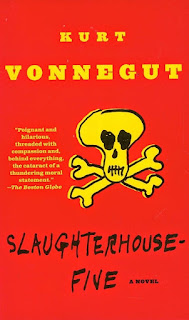In the year 2050, our planet's climate crisis has reached devastating consequences. Ten years previously, a massive heatwave killed millions of people in the Persian Gulf. In order to turn the tide of such ongoing destruction, the people of Earth have come together to decide they need a single leader, a Protector, for all of us so that we can move in one direction and successfully combat these threats for our own survival.
Thus, an election was planned. Now, the primaries have been completed, and we're down to just two final candidates: a former United States president, and an "artilect", an advanced AI personality who is already serving as Governor of the "Floating States". But Marcus Tully, a well-known trustworthy investigative journalist has been contacted by a whistleblower which leads him down a dark and emotion-filled rabbit hole of multiple conspiracies and political intrigue. And murder.
I didn't know what to expect when I first began to read this book. But right from the beginning, I was pleasantly surprised. A near-future science fiction yarn with political overtones was right up my alley, especially when it doesn't hit me over the head with endless technobabble. But then the novel morphed into a rather complex murder mystery, also near and dear to me heart. But it didn't stop there as it morphed again into pure sci-fi thriller territory. And then it dawned on me. It wasn't morphing at all but rather was firing all those aspects at me simultaneously. That makes it sound like chaos, but the prose made it entirely engaging and readable. The characters, especially Tully and the chief security officer October were fun to watch as they tried to get to the bottom of the murder. Of course, a major theme/question throughout the novel surrounded the wisdom of putting an AI in charge of humanity's future and in fact, whenever the AI politician, "Solomon" was depicted in a scene, I was torn between really wanting to trust it versus wondering if he/it would turn out to be like HAL or a Terminator.
Author Thomas Weaver describes himself as a writer and serial tech entrepreneur. Certainly, he has devoted a lot of thought to what the future may hold for us. This novel seems extremely rooted in logical assumptions of our own near future and the extrapolations of current tech and societal evolution (impact of social media, conspiracy theories, election interference, etc.) seem spot on. That makes this book both a nice balance between an intriguing future, and a scary one. The ending could serve as a finale even though nothing is neatly tied up and we don't get definitive answers or outcomes to all the events in the book.
Rumor has it that Weaver is planning a sequel, although he states that he envisions a duology and not a series. Count me in when that book becomes available.



















